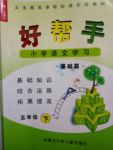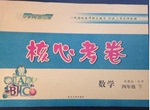题目内容
I appreciated the opportunity to study abroad two years ago.
A.having been given B.having given
C.to have been given D.to be given
A
解析:
动词appreciate后接动词?ing形式,由于主语I与give之间是被动关系,故应使用动名词的被动式,据此,A项为正确选项。

练习册系列答案
 小学学习好帮手系列答案
小学学习好帮手系列答案 小学同步三练核心密卷系列答案
小学同步三练核心密卷系列答案
相关题目
— Can I help you with it?
— I appreciate your _______, but I can manage it myself.
|
A.advice |
B.offer |
C.question |
D.idea |
 I read Alison Burnham’s review of When We were 12, and I do not agree with her. I thought the programme was wonderful — I found the old news pictures really interesting — they helped to bring to life the stories the people were telling.
I read Alison Burnham’s review of When We were 12, and I do not agree with her. I thought the programme was wonderful — I found the old news pictures really interesting — they helped to bring to life the stories the people were telling.